What does it really mean to be morally good? Michael Schur actually created a TV show exploring this question — a comedy in fact! His personal quest for answers also produced this book.
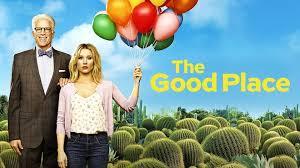
We watched some episodes of the show, The Good Place. That is, Heaven. Very few people get in. The vast majority go to The Bad Place. Its ambience is hinted by only two seconds of audio — of horrible screaming. Such a concept of the nature of things is kind of disturbing — for a comedy.
Eleanor got into The Good Place only by a bureaucratic screw-up. It is indeed a paradise, and she fears being found out and kicked out. So she sets about trying to change herself to earn her slot.
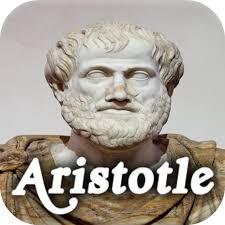
This immediately introduces one of the Big Three key moral philosophy concepts which the book explores — “virtue ethics” originating with Aristotle. The idea that moral actions are rooted in moral character. Eleanor illustrates this — her bad character shapes her behavior, and overlaying good intentions can’t seem to work. However, she is a nice bad person. And Aristotle also posited that moral character can be developed with practice. Eleanor is trying. (Gradually it does seem to work.)
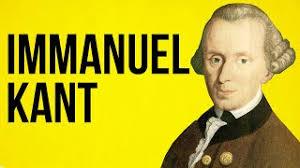
The other two biggies are utilitarianism (Bentham and Mill) and deontology (Kant). The former, also called consequentialism, holds that it’s the consequences of actions that matter, with the aim being “the greatest good for the greatest number.” Kant’s deontology instead posits that it’s all about following rules — and the criterion for a proper rule (his “categorical imperative”) is that it would work out well if everyone did follow it.
How do we navigate among these three seemingly very divergent paradigms? Start by asking: why be “moral” or “good?” What do those words actually mean? What is the objective to be served? Schur actually addresses that only in a brief footnote, saying that while utilitarianism targets “happiness,” one might also choose “kindness” or “income equality” or “roasted beet consumption.”
The religious would frame the objective in terms of serving God or the like. Forget that, because there is no God. In fact, the cosmos simply is what it is, with no “objective” because there is nothing to impart one. That leaves it entirely up to us to figure out what, despite the cosmic bleakness, works for us.
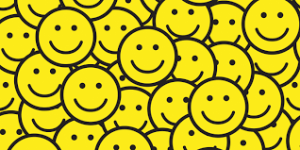
And the answer is actually clear. You can talk about desiderata like wealth or kindness or roasted beet consumption, but those are proximate rather than ultimate objectives. The only reason to want them is because they lead to something else — happiness. That has to be the ultimate objective.*
Of course “happiness” is itself a tricky, fraught concept. But we needn’t get into that here. The way I always frame it is in terms of the feelings of beings capable of feeling — the only thing that, in an otherwise meaningless cosmos, can matter.

The problem of “virtue ethics” is that problem of what ultimately does matter — why are virtues virtues? Why should we want to have them? The problem with utilitarianism is illustrated by the “runaway trolley” conundrum and its permutations — sacrificing one to save five — or, say, taking organs from one healthy person to save five sick ones. The problem with deontology is illustrated by the Nazis at your door asking about hidden Jews; is it okay to break the rule against lying?
What all of that shows is that while each of the three approaches supplies a method for evaluating moral problems, none is complete in itself. All three come into play on any real moral problem. But to me utilitarianism is closest to the ultimate theory, being clearest about what the true objective is.

Schur suggests the book’s most important point is what he calls moral exhaustion. Introduced by a store’s free sample tray saying “one per customer.” But it’s something very appetizing. If he’s a very moral person who’s done oodles of good deeds, does that entitle him to take three? Schur says that all day long we’re actually confronted with what are micro ethical choices (like in our consumer decisions). Amid a welter of other stuff to deal with (like spouses, work, and kids). Being alive is hard work. Can we cut ourselves some slack? Schur argues that being a moral saint all the time actually violates Aristotle’s “golden mean” idea, that too much of a good thing can be, well, too much.
But he’d allow “moral jaywalking” only with two provisos: one, no one is harmed, and two, we acknowledge to ourselves it’s not ideal. And he invokes too the slippery slope . . . leading to a belief that anything you want to do is okay.
This introduces his condemnation of Ayn Rand as the advocate for selfishness, quoting her that when a beggar approaches you, you owe them nothing. Contrasting with Peter Singer who advocated giving to the poor until you’re equally poor. Neither seems right.
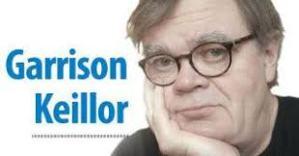
I’ll quote Garrison Keillor saying that if one’s purpose in life is to serve others, then what purpose is served by the existence of those others? It’s not a silly question. Can the ultimate goal of human happiness be served if everyone is sacrificing themselves for others? Your first duty is to your own happiness — after all, you’re the one best positioned to understand and serve that — and to the happiness of those dear to you. Any charity to others cannot be an obligation; if it were, Singer would be right. And if you’re somehow obligated to help Stranger A, then what about Strangers B, C, D . . . ? And a billion others. This shows such altruism must be a choice, not a duty.
Recall Schur’s justification for “moral jaywalking” stipulating that no one is harmed. That shows a fundamental confusion. If there is actually no harm, then the act is not wrong. (“No harm, no foul.”) But his example of taking extra free samples does harm the store owner, as well as people who’ll miss out altogether. And this indeed points up again the basic utilitarian, consequentialist insight. The morality of anything depends on balancing its pluses and minuses for happiness.
Taking three samples is a plus for his own happiness. But an objective unbiased evaluator cannot privilege his own interests over those of others when weighing utilitarian pluses and minuses. All people standing equally is another fundamental moral principle.
However: human beings cannot be moral calculating machines. The soldier who threw himself on a grenade to save his comrades did refuse to value his life higher than theirs. But valuing one’s own life (and well-being) is integral to our very nature. Evolution programmed a powerful survival instinct into us, for obvious reasons.
I believe people do have a fundamental human right to seek their own good. Harming others is to be avoided to the greatest extent feasible. That’s the best morality we can rationally envision.

Schur adverts to another standpoint from which to view this — what do we owe each other? Singer says “everything.” But excuse me. Where does such an obligation come from? Duties don’t arise from nothing, but from relationships. Ayn Rand was actually correct to say you don’t owe beggars any of your money, which you worked to obtain (and they did not). They have no right to it. What they do, however, have a right to is not being harmed by you.
That might seem a minimalist sort of ethics. But if we have a world in which that prevailed, and nobody did any more or less, that would be a vast improvement.
* Schur quotes Buddhist sage Thich Nhat Hanh that some things we seek — wealth, fame, possessions — are often actually obstacles to our happiness. That can certainly be true of the quest for them, but can even be true of getting them.
